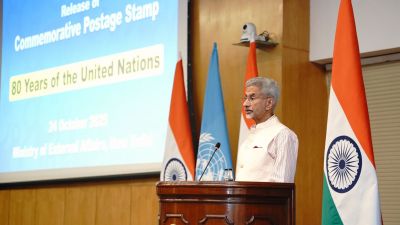MRTPC pulls up Raymond and J K (Bombay)
NEW DELHI, OCT 23: Mumbai-based Raymond Woollen Mills and its wholly-owned subsidiary J K (Bombay) Ltd have been pulled up by MRTPC for al...

NEW DELHI, OCT 23: Mumbai-based Raymond Woollen Mills and its wholly-owned subsidiary J K (Bombay) Ltd have been pulled up by MRTPC for allegedly practising restrictive trade by stipulating its dealers to order substantial quantity of trousers along with regular supply of other garments.
Following a complaint filed by a Mumbai-based dealer Roop Milan in January, 1988, alleging that Raymond had stipulated that blazers, suits, safaris would be supplied only if substantial orders were placed for readymade trousers, the commission directed Director (Research) to probe and submit a preliminary investigation report (PIR).
However, the bench discharged notice of enquiry, earlier issued by the commission, against Raymond Mills for only being the supplier of fabric to J K (Bombay) but said "both the respondents are liable for action under the Act and have been rightly proceeded against."
The report, which recommended that a case of restrictive trade practice was made out against the respondents and an enquiry may be instituted against them, had revealed that Raymond Woollen Mills was supplying fabric to JK (Bombay) which was into manufacturing and marketing of the garments.
Director (Research) had deputed an officers team to investigate into the complaint and had contacted a number of dealers of the garments manufactured by J K (Bombay) including the complainant. It had reported in its PIR that similar allegation of tie-up sales were made by other two Mumbai-based retailers but on the condition of anonymity.
From the information furnished by Roop Milan, it transpired that out of 139 items supplied by the respondents 119 were trousers and the balance 20 were blazers and suits, the commission said.
The commission said "from the evidence both oral and documentary it transpires 133 trousers were supplied to the complainant in 1985-86. However, no record of the orders placed with the respondent could be produced, but the complainant stated that he was compelled by the respondent to place substantial order for trousers in order to get supplies of blazers, safaris and suits."
The bench noted that the complainant had alleged that there was pressure on him to accept a much higher quantity of trousers than his requirement or he could sell and when he showed his unwillingness to accept the condition, his dealership was terminated and security money was refunded.
"Termination of dealership or respondents’ refusal to sell with a well established dealer is bound to have an adverse effect on competition…. it will reduce the number of retail dealers in the local markets and thus will have the effect restricting and lessening of competition in the sale and supply of readymade garments and,therefore, would also be prejudicial to public interest," the bench said.
"Restricting and reducing the supply of ready to wear garments would also attract the provisions of the act," it added.
However, denying the charges Raymond Woollen Mills said it was not involved in the manufacture and sale of readymade garments and therefore, the question of adoption of restrictive trade practices by it did not arise.
J K (Bombay) Ltd submitted to the commission that readymade garments manufactured by it were in great demand in the market and were supplied to the dealers in pursuance of the orders place by them and subject to availability of stocks. It also mentioned that the manufacture of readymade garments was reserved for the small scale sector and the respondent had a negligible market share.





- 01
- 02
- 03
- 04
- 05


























